Global events can greatly influence market trends, making it important for investors, businesses, and policymakers to understand these effects.
These events can cause both short-term market volatility and long-term economic trends. Government policies and central bank actions, like changes in interest rates and taxes, directly affect financial markets by changing economic conditions. International trade and investment impact a country's economy and currency strength. Market movements are also driven by speculation and expectations about the future. Supply and demand dynamics, influenced by these factors, ultimately shape prices and create market trends.
This article will explore important economic factors, the role of exchange rates, and the effects of geopolitical events, natural disasters, and global trade developments on market trends.
➟ Read more insights and tips to up your trading game!

Understanding the Global Economy
Definition of the Global Economy
What is global economy?
The global economy refers to the interconnected economic activities of countries worldwide. It includes all international trade, investment, and financial transactions, forming a network where economic activities in one country can affect others.
How Economies Are Interconnected
They are interconnected through trade, investment, and financial markets. Trade allows countries to exchange goods and services, leading to greater efficiency and growth. Investment across borders, such as when a company builds a factory in another country, provides capital and creates jobs. Financial markets move capital globally, ensuring resources are used efficiently.
Role of International Trade and Investment
International trade and investment drive the global economy. Trade gives countries access to a wider variety of goods and services and promotes innovation. Foreign direct investment (FDI), where companies invest directly in foreign facilities, creates jobs and boosts economic growth. These activities link economies, fostering global integration and cooperation.
Market Forces Factors Influencing Market Trends
Government Policies and Central Bank Actions
These are crucial in shaping market trends. Fiscal policies, such as changes in taxation and government spending, can stimulate or slow down economic activity. Central banks influence markets through monetary policy by adjusting interest rates and controlling the money supply. For example, lowering interest rates can boost spending and investment, leading to economic growth.
International Transactions
International transactions, including trade and investment, significantly impact a country's economy and currency strength. A country with a trade surplus, exporting more than it imports, often sees its currency strengthen. On the other hand, a trade deficit can weaken a currency. These transactions reflect the global flow of goods, services, and capital, affecting market trends worldwide.
Speculation and Expectations
Market movements are heavily influenced by speculation and expectations about the future. Investors and traders make decisions based on their outlook for economic conditions, corporate earnings, and geopolitical events. Positive expectations can drive markets up, while negative expectations can lead to sell-offs. For example, anticipation of strong economic growth can lead to a stock market rally.
Supply and Demand Dynamics
Supply and demand dynamics are fundamental in determining prices and market trends. When demand for a product exceeds supply, prices tend to rise, benefiting producers. Conversely, an oversupply can lead to lower prices, benefiting consumers but potentially harming producers. These dynamics are influenced by various market forces factors, including consumer behavior, production costs, and global events.
Currency and Exchange Rates
Importance of Exchange Rates
Exchange rate and currency are crucial for a country's economic health. They determine how much one currency is worth in terms of another and affect international trade, investment, and tourism. A higher-valued currency makes imports cheaper and exports more expensive, impacting the trade balance and overall economy.
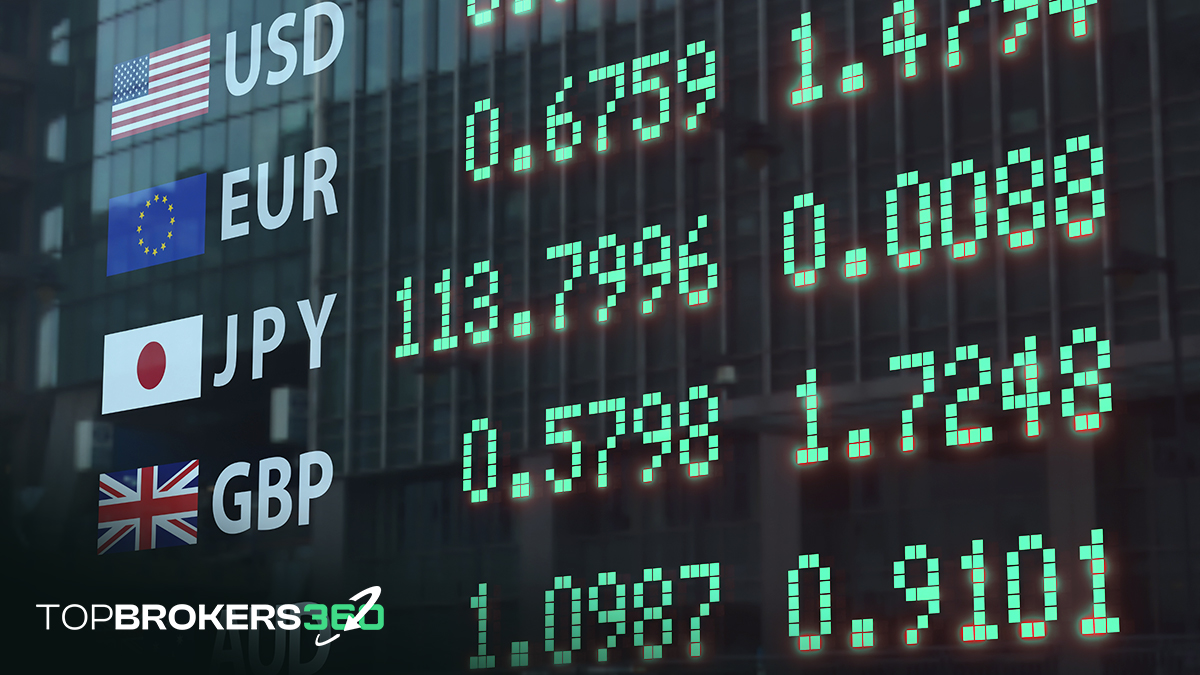
Factors Influencing Exchange Rates
Several factors influence exchange rates and currency values, including:
- Inflation Differentials: Countries with lower inflation rates typically see their currency appreciate because their purchasing power increases relative to other currencies.
- Interest Rates: Higher interest rates offer better returns on investments in a country's assets, attracting foreign capital and causing the currency to appreciate.
- Current Account Deficits: A country that imports more than it exports (current account deficit) may see its currency depreciate due to higher demand for foreign currency.
- Public Debt: High levels of public debt can lead to inflation and currency devaluation, as investors fear the country might default or print more money.
- Terms of Trade: Improved terms of trade (higher export prices relative to import prices) can lead to a stronger currency.
- Economic Performance: Strong economic performance attracts foreign investors, increases demand for the country's currency, and causes appreciation.
Currency Warfare
Currency warfare, or competitive devaluation, occurs when countries intentionally devalue their currencies to gain a trade advantage. By making exports cheaper and imports more expensive, countries aim to boost their domestic industries. However, this can lead to retaliation and trade conflicts, creating instability in global markets.
The Impact of War on the Stock Market
Historical Examples of War Impacting Stock Markets
Wars have historically had significant effects on stock markets. For example, during World War II, stock markets experienced extreme volatility. The Gulf War in the early 1990s also led to sharp market fluctuations, with oil prices soaring and investor uncertainty causing market swings.
How Does War Affect the Stock Market?
War impacts the stock market through various mechanisms:
- Investor Sentiment: Wars create uncertainty, causing fear and panic among investors. This often leads to sell-offs and market declines as investors seek safer assets.
- Supply Chain Disruptions: Conflicts can disrupt global supply chains, affecting production and trade. Companies reliant on affected regions may see their stock prices drop due to interrupted operations and increased costs.
- Government Spending: Wars typically lead to increased government spending on defense, which can boost certain sectors like defense contractors. However, this can also lead to higher deficits and inflation, negatively impacting other areas of the economy.
Short-term vs. Long-term Effects of War
The effects of war on the stock market can vary in the short term and long term:
- Short-term: In the immediate aftermath of a conflict, markets often react negatively due to uncertainty and fear. Prices of commodities like oil may spike, and defensive stocks may outperform.
- Long-term: Over time, markets may stabilize as the economic impact of the war becomes clearer. Reconstruction efforts and increased government spending can stimulate economic activity, potentially leading to a market recovery.
The Influence of Global Factors on National Economies
How Global Factors Affect National Economies
Global factors such as trade policies, political stability, and international agreements play a significant role in shaping national economies. These factors can either stimulate economic growth or create challenges for domestic markets.
Trade Policies and Agreements
International trade policies and agreements directly impact national economies. Free trade agreements can open up new markets for exports, boosting economic growth. Conversely, protectionist policies can limit market access and reduce trade volumes, potentially leading to slower economic growth.
Political Stability and Geopolitical Events
Political stability is crucial for economic growth. Countries with stable political environments tend to attract more foreign investment, as investors feel more secure about the safety of their investments. On the other hand, geopolitical events such as conflicts and political unrest can deter investment and disrupt economic activities. For example, Brexit created significant uncertainty for businesses operating in the UK and the EU, affecting investment and trade.
International Agreements
International agreements, such as climate accords or trade pacts, can influence national economic policies and priorities. For instance, commitments to reduce carbon emissions can drive investment in renewable energy and green technologies, creating new economic opportunities.
Countries Affected by Global Economic Shifts
Several countries provide clear examples of how global economic shifts can influence national economies:
- China: China's rapid economic growth has been fueled by its integration into the global economy through trade and investment. However, trade tensions with the US have led to economic uncertainties and shifts in global supply chains.
- Greece: The Greek debt crisis highlighted how interconnected economies are vulnerable to global financial markets. International bailouts and austerity measures imposed by the EU significantly impacted Greece's economy.
Role of Multinational Corporations and Foreign Investment
Multinational corporations (MNCs) and foreign direct investment (FDI) are critical in linking national economies to global markets. MNCs bring capital, technology, and expertise to host countries, fostering economic development. FDI creates jobs and boosts economic growth by providing the necessary resources for infrastructure and industrial development.
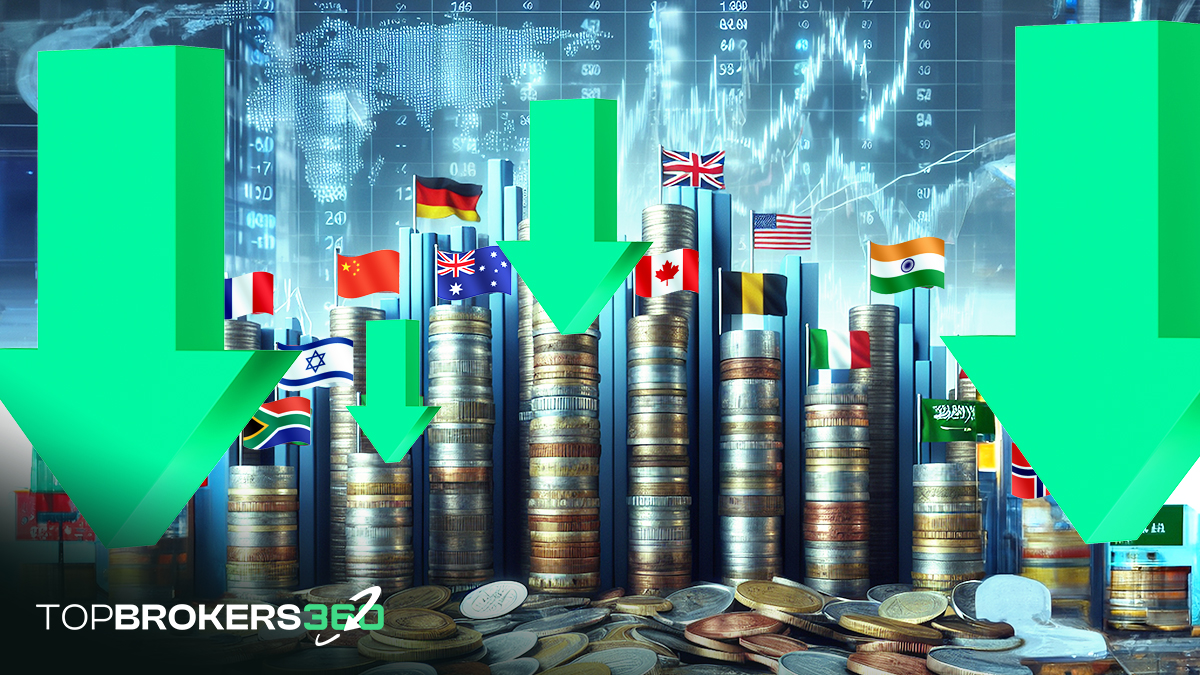
Currency Warfare and Market Trends
Definition of Currency Warfare
Currency warfare, also known as competitive devaluation, occurs when countries intentionally devalue their currencies to gain an advantage in international trade. By making their exports cheaper and imports more expensive, countries aim to boost domestic industries and improve their trade balances.
An example of currency warfare is the "currency war" between the United States and China. The US has accused China of keeping its currency, the yuan, artificially low to make Chinese goods cheaper in international markets, thereby boosting exports.
Impact of Currency Manipulation on Global Trade
Currency manipulation can have significant effects on global trade:
- Increased Export Competitiveness: A devalued currency makes a country's goods and services cheaper for foreign buyers, potentially leading to increased exports.
- Import Costs: While exports may benefit, imports become more expensive, raising costs for businesses that rely on foreign goods and potentially leading to higher inflation.
- Trade Imbalances: Persistent currency manipulation can lead to trade imbalances, where some countries have significant surpluses while others face deficits. This can create tensions and lead to retaliatory measures.
Ripple Effect on Stock Markets and Economic Stability
The effects of currency warfare extend beyond trade and can impact stock markets and economic stability:
- Stock Market Volatility: Currency devaluation can lead to market uncertainty and volatility. Investors may react to sudden changes in currency values, affecting stock prices.
- Investment Flows: Currency fluctuations can influence foreign investment decisions. Investors may pull out of countries with unstable currencies, leading to capital flight and further economic instability.
- Economic Uncertainty: Persistent currency manipulation can create long-term economic uncertainty, affecting business planning and investment decisions. It can also lead to competitive devaluations by other countries, increasing global economic instability.
How Global Events Influence the Economy in Your Country
Analysis of Specific Global Events
Global events like Brexit, the US-China trade war, and the COVID-19 pandemic have profound impacts on national economies. For instance:
- Brexit: The UK's decision to leave the EU created significant uncertainty for businesses operating in both regions. Trade agreements had to be renegotiated, impacting supply chains and investment decisions.
- US-China Trade War: Tariffs imposed by the US and retaliatory measures by China disrupted global supply chains, affecting countries dependent on trade with these economic giants. This led to increased costs for businesses and shifts in global trade patterns.
- COVID-19 Pandemic: The pandemic caused unprecedented economic disruptions worldwide. Lockdowns and restrictions led to a decline in economic activity, unemployment surged, and governments implemented massive fiscal and monetary stimulus measures to mitigate the impact.
Influence on Local Market Trends
Global economic trends have direct implications for local markets:
- Trade Policies: Changes in trade policies can open or close markets for local businesses. For example, tariffs on steel imports can benefit domestic steel producers but increase costs for industries relying on steel.
- Investment Flows: Global events can affect foreign investment in your country. Political stability, favorable trade agreements, and economic growth attract foreign investors, boosting local markets.
- Consumer Behavior: Global trends, such as shifts towards sustainable products or technological advancements, influence local consumer preferences and market demand.
Strategies for Investors and Businesses
To navigate the impact of global events on local economies, investors and businesses can adopt several strategies:
- Diversification: Diversifying investments across different regions and sectors can reduce the risk associated with global economic fluctuations.
- Monitoring Economic Indicators: Keeping an eye on key economic indicators, such as GDP growth, inflation, and trade balances, helps in making informed investment decisions.
- Adapting to Market Changes: Businesses should stay agile and adapt to changes in consumer behavior and market conditions driven by global events. This may involve shifting supply chains, investing in new technologies, or exploring new markets.
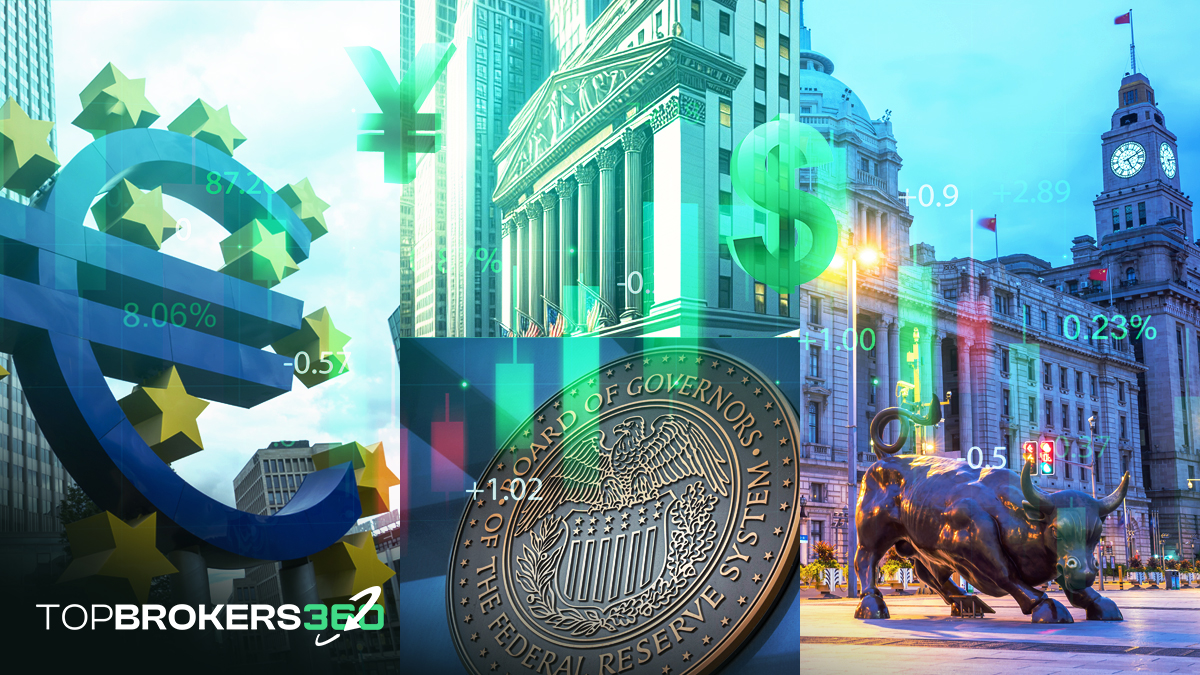
The Role of Economic Factors in Market Trends
Global events significantly impact market trends. The interconnected global economy means events in one region can affect markets everywhere. Key economic factors such as government policies, central bank actions, geopolitical tensions, and natural disasters shape market dynamics.
Exchange rates, international trade, and currency warfare play major roles in market trends. Wars and geopolitical conflicts create uncertainty, disrupt supply chains, and affect investor sentiment, causing stock market fluctuations.
National economies are influenced by global trade policies, investment flows, and international agreements. Understanding these influences helps businesses adapt and investors make informed decisions. Strategies like diversification and monitoring economic indicators are crucial for navigating market complexities.
Staying informed about global events and their economic impacts is essential for managing market trends and mitigating risks in a dynamic economic environment.
➟ Find the best broker for you in our Comparison Review articles!













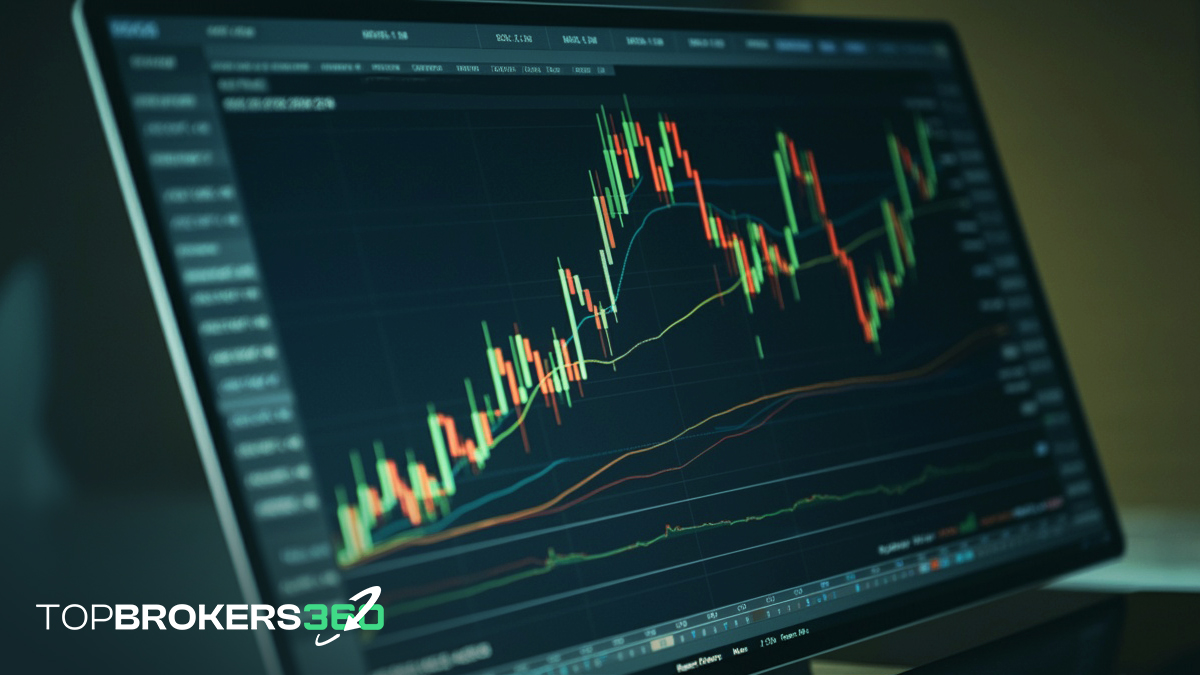




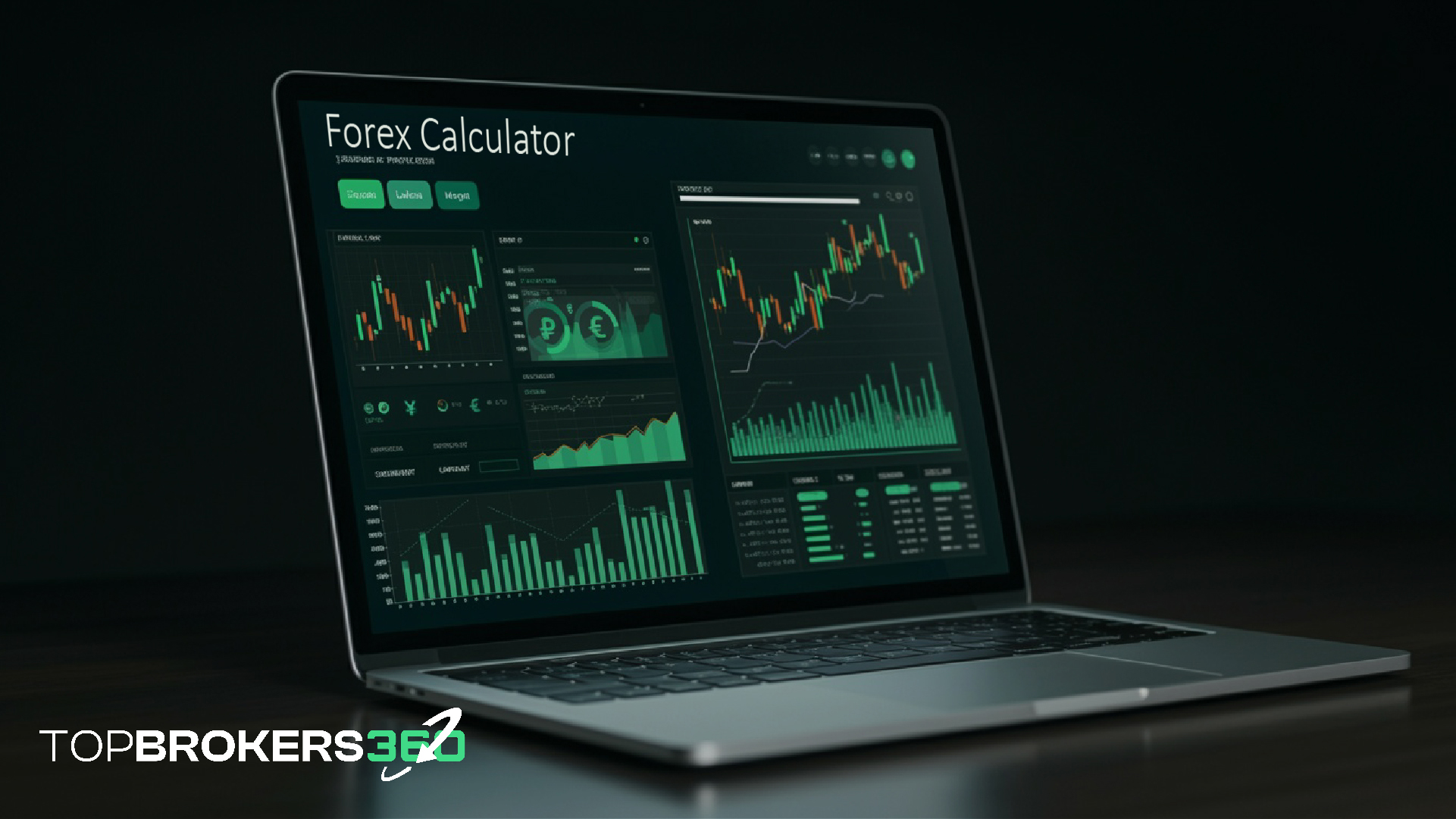
















![Weekly Economic Overview [05.07.24]: S&P 500, NASDAQ, Tesla, and Apple](https://www.topbrokers360.com/wp-content/uploads/2024/07/Weekly_Update_Thumbnail_5.jpg)

![Weekly Economic Overview [28.06.24]: US Stock Market Trends, Inflation Insights, and NVIDIA Analysis](https://www.topbrokers360.com/wp-content/uploads/2024/06/Weekly_Update_Thumbnail_4.jpg)


































